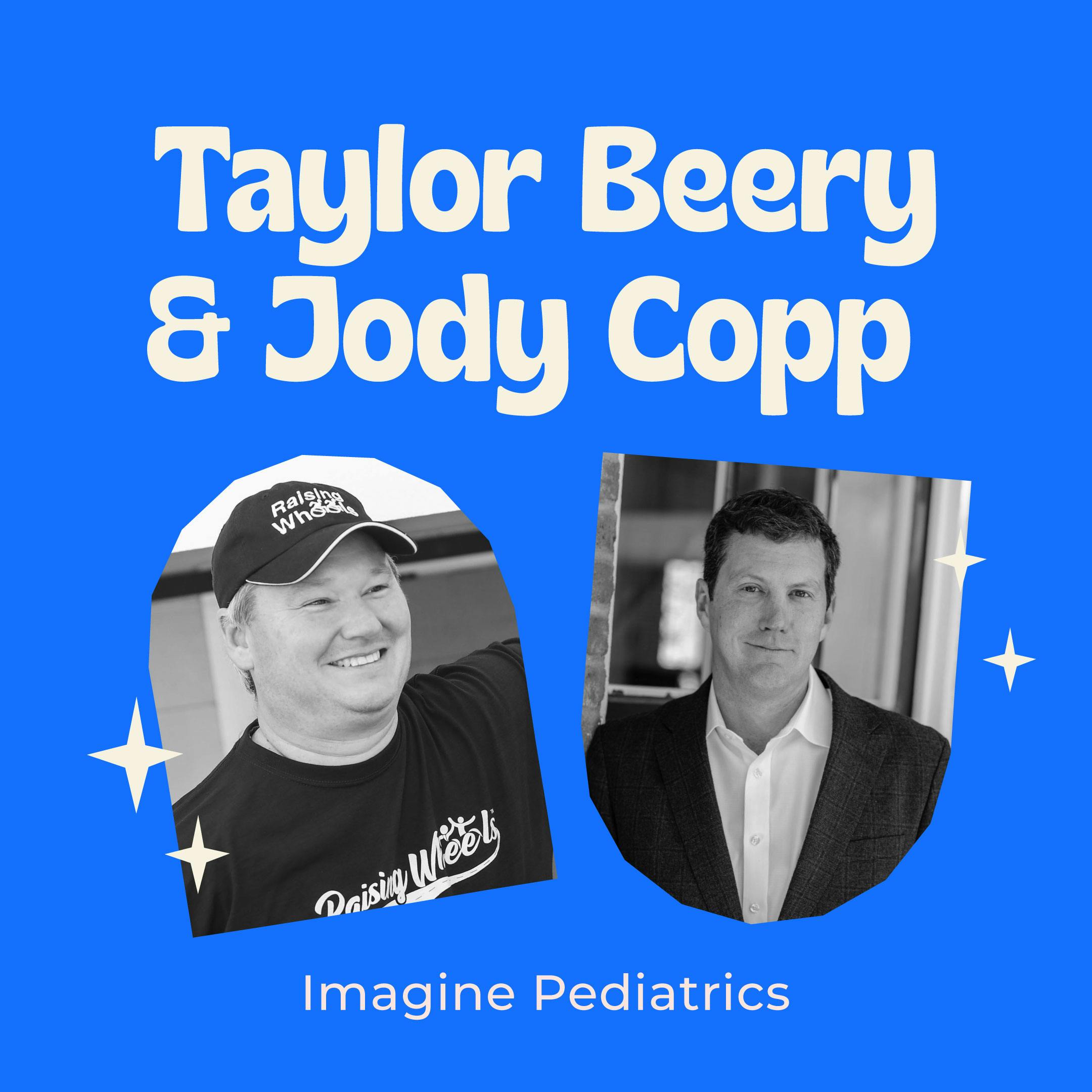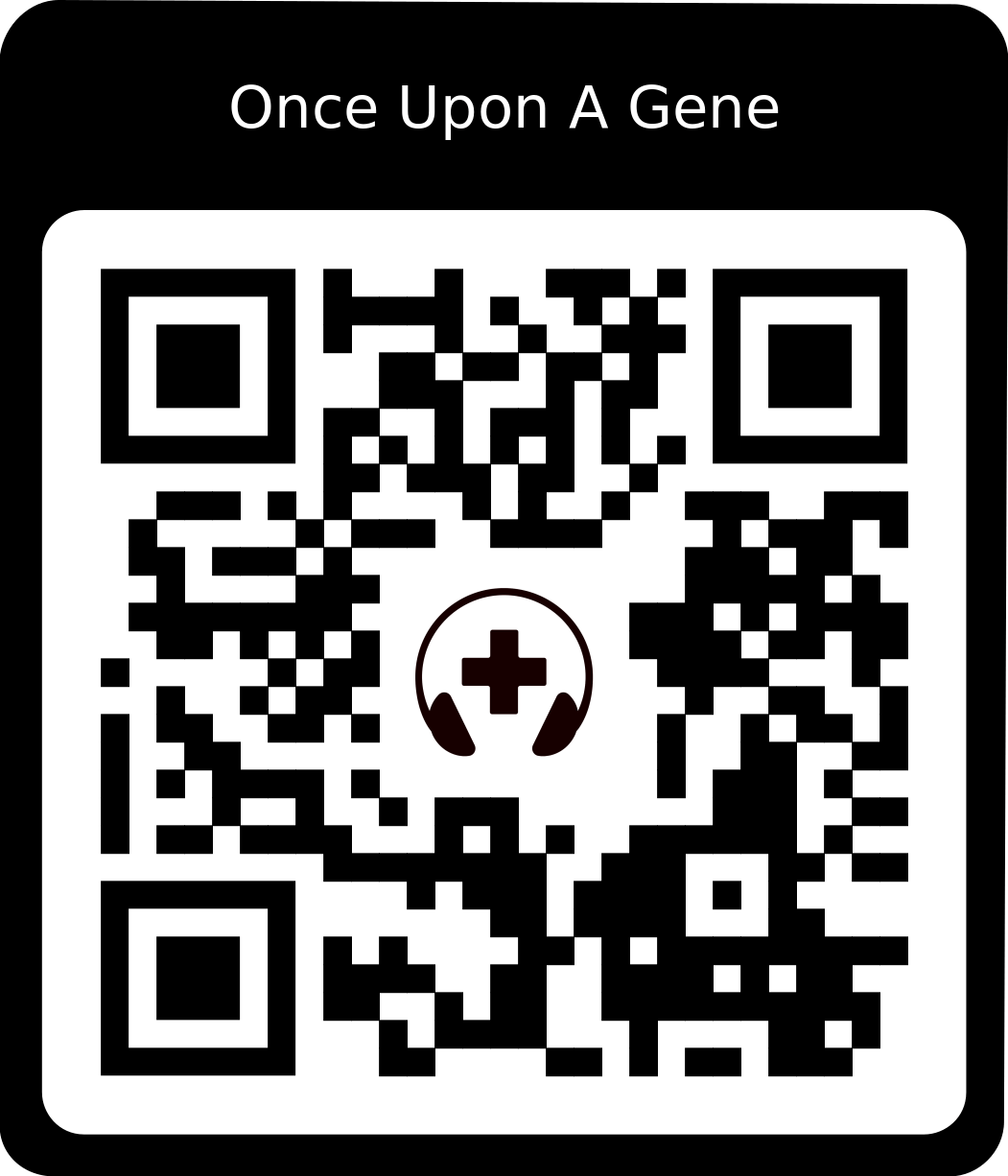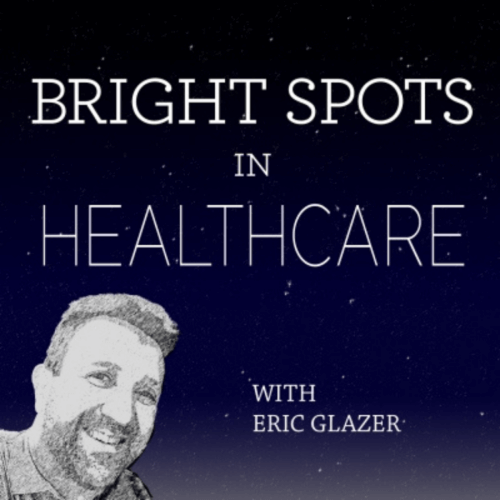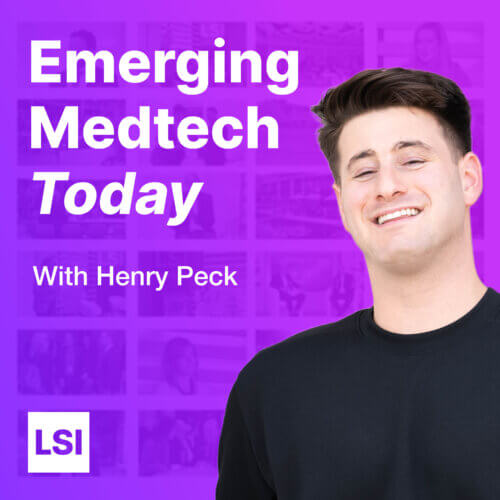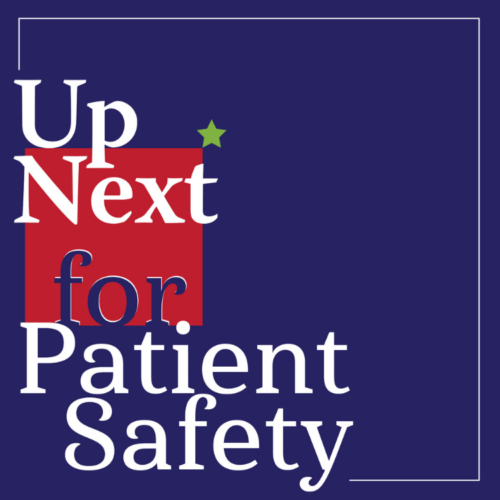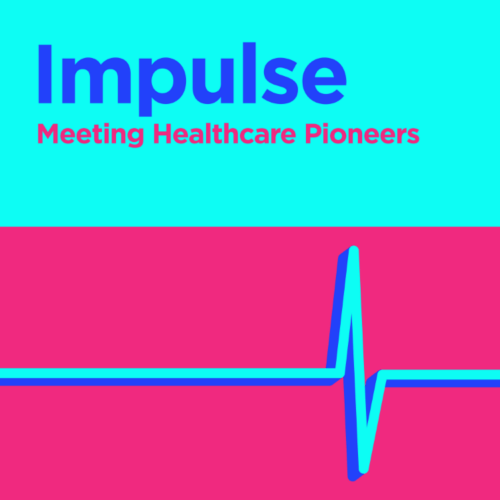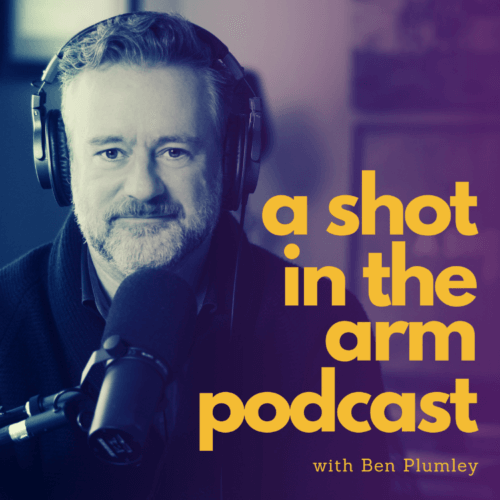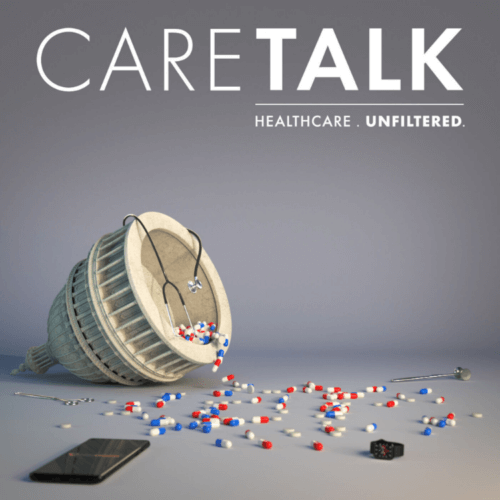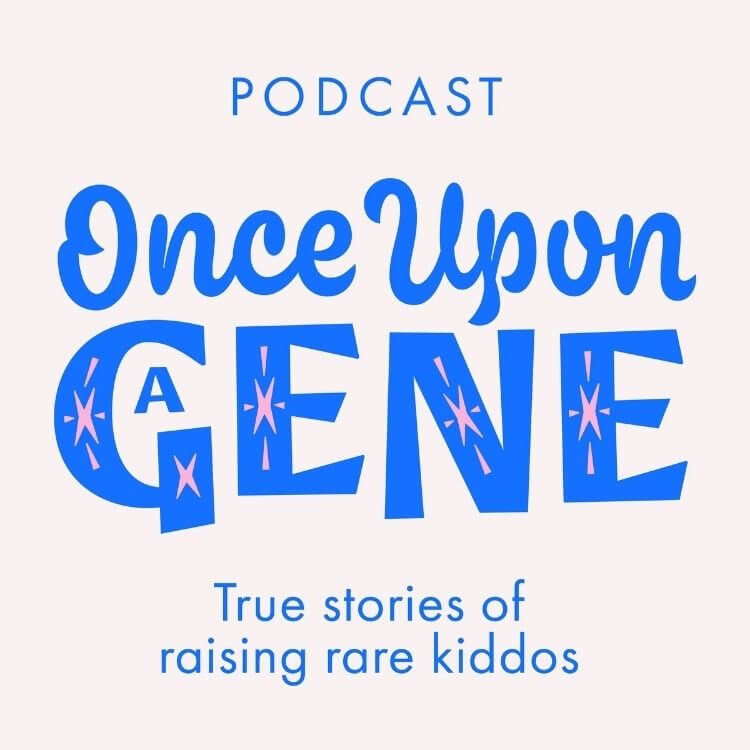
Once Upon A Gene
True stories of raising rare kiddos
Navigating the Complexities of Grief: How One Mother’s Grief Birthed a Supportive Community with, Heather Straughter.
In this heartfelt conversation, Heather Straughter shares her
profound journey through grief after the loss of her son, Jake. She discusses
the pivotal moments that shaped her path, the importance of community support,
and the ongoing nature of grief. Heather reflects on the complexities of
acknowledging loss, the unexpected triggers that can arise, and her evolving
perspective on grief hierarchies. Through her experiences, she emphasizes the
significance of finding one's own way to cope and the power of humor in
navigating the dark moments of grief. In this conversation, Heather Straughter
shares her personal journey through grief after the loss of her son, Jake. She
discusses societal expectations surrounding grief, the dual nature of grief as
both painful and transformative, and the importance of community support.
Heather also talks about the creation of her podcast, 'A Place of Yes,' aimed
at sharing stories of families dealing with similar challenges, and her mission
to help families navigate the complexities of caring for children with special
needs. The conversation emphasizes the need for compassion, understanding, and
proactive support for grieving families.
Follow:
Jake's Help From Heaven
A Place Of Yes Podcast on Instagram
Chapters
00:00 Introduction and Personal Connection
01:41 The Impact of Grief on Life Choices
02:50 Navigating Grief and Community Support
08:21 The Ongoing Nature of Grief
10:33 The Complexity of Grief and Acknowledgment
12:26 Triggers and Unexpected Moments of Grief
15:59 The Hierarchy of Grief
18:23 Coping Mechanisms and Humor in Grief
22:09 The Dark Side of Grief
24:22 Unspoken Aspects of Grief
26:07 Finding Your Own Path in Grief
29:20 Navigating Grief: Societal Expectations and Personal Experiences
32:43 The Dual Nature of Grief: Pain and Growth
36:47 Creating a Supportive Community: The Birth of a Podcast
42:06 Expanding the Mission: Helping Families Beyond Local Boundaries
54:16 Words of Comfort: Supporting Grieving Families
March 27, 2025
Reimagining Pediatric Healthcare: How Imagine Pediatrics is Revolutionizing In-Home Medical Care for Medically Complex Kids and Lightening the Load for Families – Taylor Beery and Jody Copp
Reimagining Pediatric Care with Imagine Pediatrics
For families of medically complex kids, the healthcare system often feels broken—long hospital stays, insurance battles for basic needs, and constant caregiving without real support. But what if there was a better way?
In this episode, I’m joined by Taylor Beery, co-founder of Imagine Pediatrics, Jody Copp, a full-time rare disease dad of two boys with Combined oxidative phosphorylation deficiency type 13 associated with a mutation in the PNPT1 gene and whose family has experienced firsthand the impact of their care model. Imagine Pediatrics is changing the game by providing 24/7, in-home, virtual-first medical care designed to keep kids safe at home—not in the hospital.
He also has a rad foundation that we will chat about in a future episode: Raising Wheels Foundation
If you are in Texas, Florida, and District of Columbia you have access to Imagine Pediatrics!
We discuss:
 The problems with the current healthcare system for medically complex kids
The problems with the current healthcare system for medically complex kids
 Why "safe days at home" should be the goal of pediatric care
Why "safe days at home" should be the goal of pediatric care
 How Imagine Pediatrics partners with families rather than making them fight for care
How Imagine Pediatrics partners with families rather than making them fight for care
 The economic case for home-based care and why insurance should want this model
The economic case for home-based care and why insurance should want this model
 Walker’s legacy— how Taylor’s son inspired a movement to improve pediatric healthcare Kids Join the Fight
Walker’s legacy— how Taylor’s son inspired a movement to improve pediatric healthcare Kids Join the Fight
 Listen now & share with families who need this
Listen now & share with families who need this
 The problems with the current healthcare system for medically complex kids
The problems with the current healthcare system for medically complex kids
 Why "safe days at home" should be the goal of pediatric care
Why "safe days at home" should be the goal of pediatric care
 How Imagine Pediatrics partners with families rather than making them fight for care
How Imagine Pediatrics partners with families rather than making them fight for care
 The economic case for home-based care and why insurance should want this model
The economic case for home-based care and why insurance should want this model
 Walker’s legacy— how Taylor’s son inspired a movement to improve pediatric healthcare Kids Join the Fight
Walker’s legacy— how Taylor’s son inspired a movement to improve pediatric healthcare Kids Join the Fight
 Listen now & share with families who need this
Listen now & share with families who need this
March 20, 2025
How a Service Dog Helped a Child with CACNA1C-Related Disorder (Timothy Syndrome) Gain Independence – with Sue Bresnahan
Service dogs are often associated with guiding the blind or assisting with mobility, but their impact goes far beyond traditional roles. In this episode, I’m joined by Sue Bresnahan, a pediatric nurse and rare mom, whose son has CACNA1C-related disorder (Timothy Syndrome). When they welcomed Yammy, his service dog, into their family, everything changed. Yammy didn’t just provide companionship—he unlocked a level of independence and confidence that Sue never imagined possible for her son.
Sue shares their journey, the process of getting a service dog, and why families of kids with disabilities should consider this life-changing support. If you’ve ever wondered how a service dog could help a child beyond the traditional reasons, this episode is for you.
In This Episode, We Discuss:
 Sue’s journey as a rare mom and navigating CACNA1C-related disorder (Timothy Syndrome)
Sue’s journey as a rare mom and navigating CACNA1C-related disorder (Timothy Syndrome)
 The unexpected ways service dogs can support kids with disabilities
The unexpected ways service dogs can support kids with disabilities
 How Yammy transformed her son’s independence and confidence
How Yammy transformed her son’s independence and confidence
 The process of getting and training a service dog
The process of getting and training a service dog
 What families should know before pursuing a service dog
What families should know before pursuing a service dog
 Overcoming challenges and misconceptions about service dogs
Overcoming challenges and misconceptions about service dogs
 Advice for families considering a service dog
Resources & Links:
Advice for families considering a service dog
Resources & Links:
 Learn more about CACNA1C-related disorder (Timothy Syndrome)
Learn more about CACNA1C-related disorder (Timothy Syndrome)
 Service Dog Organizations & Resources - ECAD
Service Dog Organizations & Resources - ECAD
 Connect with Sue Bresnahan - Instagram
Connect with Sue Bresnahan - Instagram
 Want to support Once Upon a Gene? Leave a review on Apple Podcasts & share this episode!
Want to support Once Upon a Gene? Leave a review on Apple Podcasts & share this episode!
 Sue’s journey as a rare mom and navigating CACNA1C-related disorder (Timothy Syndrome)
Sue’s journey as a rare mom and navigating CACNA1C-related disorder (Timothy Syndrome)
 The unexpected ways service dogs can support kids with disabilities
The unexpected ways service dogs can support kids with disabilities
 How Yammy transformed her son’s independence and confidence
How Yammy transformed her son’s independence and confidence
 The process of getting and training a service dog
The process of getting and training a service dog
 What families should know before pursuing a service dog
What families should know before pursuing a service dog
 Overcoming challenges and misconceptions about service dogs
Overcoming challenges and misconceptions about service dogs
 Advice for families considering a service dog
Resources & Links:
Advice for families considering a service dog
Resources & Links:
 Learn more about CACNA1C-related disorder (Timothy Syndrome)
Learn more about CACNA1C-related disorder (Timothy Syndrome)
 Service Dog Organizations & Resources - ECAD
Service Dog Organizations & Resources - ECAD
 Connect with Sue Bresnahan - Instagram
Connect with Sue Bresnahan - Instagram
 Want to support Once Upon a Gene? Leave a review on Apple Podcasts & share this episode!
Want to support Once Upon a Gene? Leave a review on Apple Podcasts & share this episode!
March 6, 2025
Unlocking Rare Disease Diagnoses with PacBio’s Long-Read Sequencing – A Conversation with CEO Christian Henry
I’m joined by Christian Henry, CEO of PacBio, a company leading the way in high-accuracy long-read sequencing. We break down what that means in simple terms, how this technology is helping families solve their diagnostic odyssey, and why some genetic tests miss key information that PacBio can detect. Plus, if you've already had whole genome sequencing without finding an answer, Christian explains why it might be time to take another look.
We also dive into the future of genetic testing, what needs to change for sequencing to become a routine part of medical care, and how families and advocates can help drive progress forward.
This episode is all about hope, science, and the relentless pursuit of answers. Happy Rare Disease Day, and thank you for being part of this incredible community!
Topics Covered:
 What is long-read sequencing, and how is it different from traditional genetic testing?
What is long-read sequencing, and how is it different from traditional genetic testing?
 How PacBio’s technology is solving rare disease mysteries faster and more accurately.
How PacBio’s technology is solving rare disease mysteries faster and more accurately.
 Why some families don’t get answers from whole genome sequencing—and why they should consider trying again.
Why some families don’t get answers from whole genome sequencing—and why they should consider trying again.
 The biggest barriers to making genetic testing more accessible and routine in rare disease care.
The biggest barriers to making genetic testing more accessible and routine in rare disease care.
 How long-read sequencing could help lead to future treatments, not just diagnoses.
How long-read sequencing could help lead to future treatments, not just diagnoses.
 What the next five years of genomic sequencing could look like.
What the next five years of genomic sequencing could look like.
 How rare disease families and advocacy groups can collaborate with PacBio to accelerate discoveries.
Resources & Links:
How rare disease families and advocacy groups can collaborate with PacBio to accelerate discoveries.
Resources & Links:
 Learn more about PacBio and long-read sequencing: https://www.pacb.com/
Learn more about PacBio and long-read sequencing: https://www.pacb.com/
 Follow PacBio on X: @PacBio
Follow PacBio on X: @PacBio
 More about Rare Disease Day: www.rarediseaseday.org
More about Rare Disease Day: www.rarediseaseday.org
 Join the Conversation!
Have you been on a diagnostic odyssey? Have questions about genetic testing? Share your thoughts and experiences with me on Instagram
Join the Conversation!
Have you been on a diagnostic odyssey? Have questions about genetic testing? Share your thoughts and experiences with me on Instagram
 Listen & Subscribe:
Don’t forget to subscribe so you never miss an episode! If you love the show, leave a review—it helps more rare disease families find these conversations.
Listen & Subscribe:
Don’t forget to subscribe so you never miss an episode! If you love the show, leave a review—it helps more rare disease families find these conversations. 
 What is long-read sequencing, and how is it different from traditional genetic testing?
What is long-read sequencing, and how is it different from traditional genetic testing?
 How PacBio’s technology is solving rare disease mysteries faster and more accurately.
How PacBio’s technology is solving rare disease mysteries faster and more accurately.
 Why some families don’t get answers from whole genome sequencing—and why they should consider trying again.
Why some families don’t get answers from whole genome sequencing—and why they should consider trying again.
 The biggest barriers to making genetic testing more accessible and routine in rare disease care.
The biggest barriers to making genetic testing more accessible and routine in rare disease care.
 How long-read sequencing could help lead to future treatments, not just diagnoses.
How long-read sequencing could help lead to future treatments, not just diagnoses.
 What the next five years of genomic sequencing could look like.
What the next five years of genomic sequencing could look like.
 How rare disease families and advocacy groups can collaborate with PacBio to accelerate discoveries.
Resources & Links:
How rare disease families and advocacy groups can collaborate with PacBio to accelerate discoveries.
Resources & Links:
 Learn more about PacBio and long-read sequencing: https://www.pacb.com/
Learn more about PacBio and long-read sequencing: https://www.pacb.com/
 Follow PacBio on X: @PacBio
Follow PacBio on X: @PacBio
 More about Rare Disease Day: www.rarediseaseday.org
More about Rare Disease Day: www.rarediseaseday.org
 Join the Conversation!
Have you been on a diagnostic odyssey? Have questions about genetic testing? Share your thoughts and experiences with me on Instagram
Join the Conversation!
Have you been on a diagnostic odyssey? Have questions about genetic testing? Share your thoughts and experiences with me on Instagram
 Listen & Subscribe:
Don’t forget to subscribe so you never miss an episode! If you love the show, leave a review—it helps more rare disease families find these conversations.
Listen & Subscribe:
Don’t forget to subscribe so you never miss an episode! If you love the show, leave a review—it helps more rare disease families find these conversations. 
February 27, 2025
Prioritizing Caregiver Health: Gut Health, Stress, and Sustainable Wellness for Parents of Kids with Disabilities – with Integrative Health Practitioner & CTNNB1 Mom, Fraser Bridgeman
As caregivers, we give everything to our kids—but where does that leave us? Burnt out, exhausted, and running on fumes. If you’ve ever felt like you don’t even know where to start when it comes to your own health, this episode is for you.
I’m talking with Fraser Bridgeman, a fellow CTNNB1 mom and a functional integrative health practitioner, about the small but powerful changes we can make to support our own well-being. Fraser understands the unique challenges rare disease caregivers face—chronic stress, poor sleep, inflammation, and running on adrenaline for years at a time. She’s sharing practical, realistic ways to prioritize your health so you can show up for your child without running yourself into the ground.
In this episode, we discuss:
 The most common health issues caregivers face (and how stress affects the gut, sleep, and hormones)
The most common health issues caregivers face (and how stress affects the gut, sleep, and hormones)
 How to make small, sustainable changes—even when you’re overwhelmed
How to make small, sustainable changes—even when you’re overwhelmed
 Easy food swaps to support energy, gut health, and stress resilience
Easy food swaps to support energy, gut health, and stress resilience
 Practical ways to improve sleep and manage cortisol levels
Practical ways to improve sleep and manage cortisol levels
 How movement, breathwork, and mindfulness can help regulate a taxed nervous system
How movement, breathwork, and mindfulness can help regulate a taxed nervous system
 The mindset shift that will help you prioritize your own health without guilt
Listen now and take the first step toward caring for yourself—because you matter, too.
Follow Fraser on Instagram
Fraser's Integrative Health Website
The mindset shift that will help you prioritize your own health without guilt
Listen now and take the first step toward caring for yourself—because you matter, too.
Follow Fraser on Instagram
Fraser's Integrative Health Website
 The most common health issues caregivers face (and how stress affects the gut, sleep, and hormones)
The most common health issues caregivers face (and how stress affects the gut, sleep, and hormones)
 How to make small, sustainable changes—even when you’re overwhelmed
How to make small, sustainable changes—even when you’re overwhelmed
 Easy food swaps to support energy, gut health, and stress resilience
Easy food swaps to support energy, gut health, and stress resilience
 Practical ways to improve sleep and manage cortisol levels
Practical ways to improve sleep and manage cortisol levels
 How movement, breathwork, and mindfulness can help regulate a taxed nervous system
How movement, breathwork, and mindfulness can help regulate a taxed nervous system
 The mindset shift that will help you prioritize your own health without guilt
Listen now and take the first step toward caring for yourself—because you matter, too.
Follow Fraser on Instagram
Fraser's Integrative Health Website
The mindset shift that will help you prioritize your own health without guilt
Listen now and take the first step toward caring for yourself—because you matter, too.
Follow Fraser on Instagram
Fraser's Integrative Health Website
February 20, 2025
Breaking the Silence: Growing Up with Sickle Cell, Facing Pain, and Finding Strength Through Advocacy with James Griffin
In this powerful episode of Once Upon a Gene, I sit down with James Griffin, author of Breaking Silence: Living With Sickle Cell Anemia. Diagnosed at just two years old, James spent much of his life keeping his condition a secret, fearing how others would perceive him. He faced excruciating pain, hospitalizations, and the daily challenges of living with a chronic illness—all while navigating school, friendships, and a world that often didn’t understand his struggles.
Now, as an advocate and author, James is using his voice to raise awareness, empower others with sickle cell disease, and push for better care, research, and understanding. In this conversation, he shares what it was like growing up with sickle cell, the language he’s learned to use in emergency rooms to be taken seriously, and how he found the courage to finally open up about his diagnosis.
Whether you or a loved one are affected by sickle cell disease, or you simply want to hear an inspiring story about resilience and advocacy, this episode is for you.
January 30, 2025
Lighting the Way: A Story of Love, Friendship, and Finding New Dreams – CERT1 w/ Samantha & Wesley Rogers
In this inspiring episode of Once Upon a Gene, I sit down with Samantha and Wesley Rogers, founders of Lottie’s Light Foundation, and proud parents of the incredible Lottie, who lives with a CERT1 mutation. The Rogers share the heartfelt story of how their journey with Lottie led to the creation of a foundation dedicated to empowering families, fostering connections, and encouraging others to find strength in the face of challenges.
We explore how their mission encourages fighting for meaningful friendships, dreaming new dreams, and discovering untapped capacity for love and purpose. This conversation will leave you uplifted, motivated, and ready to celebrate the light that shines in every rare journey.
Highlights:
The heartfelt origin story of Lottie’s Light Foundation.
Insights into Lottie’s personality, resilience, and the joy she brings to those around her.
How the foundation inspires families to fight for friendships and redefine their dreams.
Samantha and Wesley’s advice on finding your capacity in the hardest moments.
Tips for building friendships and community in the rare disease world.
A reminder of the power of community and the importance of showing up for Rare Disease Day.
Mentioned in This Episode:
Lottie’s Light Foundation Website
Rare Disease Day 2025 in San Diego – Event details coming soon!
Tips for building friendships and community in the rare disease world.
Call to Action:
Let’s spread the light! Share this episode with your friends and community to celebrate the resilience, strength, and brilliance of the rare disease journey. If you’re in San Diego or feeling adventurous, join us for Rare Disease Day 2025! Details coming soon.
As always, don’t forget to rate, review, and subscribe to Once Upon a Gene. Your support helps bring these powerful stories to more ears!
January 23, 2025
Preconception & Prenatal Genetic Testing 101: A Conversation with Genetic Counselor, Natalie Richheimer
In this episode, I sit down with Natalie Richheimer, a genetic counselor at JScreen, to dig into the world of preconception and prenatal genetic testing. We explore the basics of carrier screening, how to interpret results, and the importance of genetic counseling for both new and experienced parents—especially those who already have a child with a rare disease. Natalie also sheds light on Variants of Uncertain Significance (VUS) and offers insight into talking with family members about genetic risks and results.
Throughout our chat, Natalie emphasizes that knowledge truly is power when it comes to family planning and navigating the complexities of genetic information. We discuss strategies for deciding between natural pregnancy, IVF with genetic screening, and other alternatives, helping you feel more confident and informed about your options.
Whether you’re just beginning your journey or seeking clarity in the midst of it, this episode offers valuable perspectives and heartfelt advice. Join us as we learn how to take charge of our genetic health and family-planning decisions with compassion and confidence.
Finally, don’t forget about the Once Upon a Gene Revival—an uplifting event designed to support, educate, and connect rare disease caregivers. Registration is open now on my website.
Links:
JScreen Genetic Testing Instagram
Once Upon A Gene Revival
January 16, 2025
Once Upon A Gene
This is a space I created to share the stories of our not so typical lives. Raising kids who are born with rare genetic syndromes and other types of disabilities can feel pretty isolating. What I know for sure is that when we can find others who 'get it,' we can find a lot more laughter, a lot more hope and feel a lot less alone.
Host
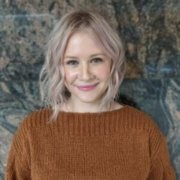
Effie Parks
Effie Parks was born in the magical land of Montana, where she was raised with her 12 loving siblings. After moving to Washington and marrying her husband, they were blessed with the birth of their son, Ford Canon Parks. When she learned that Ford had been born with an extremely rare genetic condition – CTNNB1 syndrome – she dove into the world of advocacy. Now, she is the host of her own podcast, Once Upon a Gene, where she speaks to others about their journey through life with rare disease.

